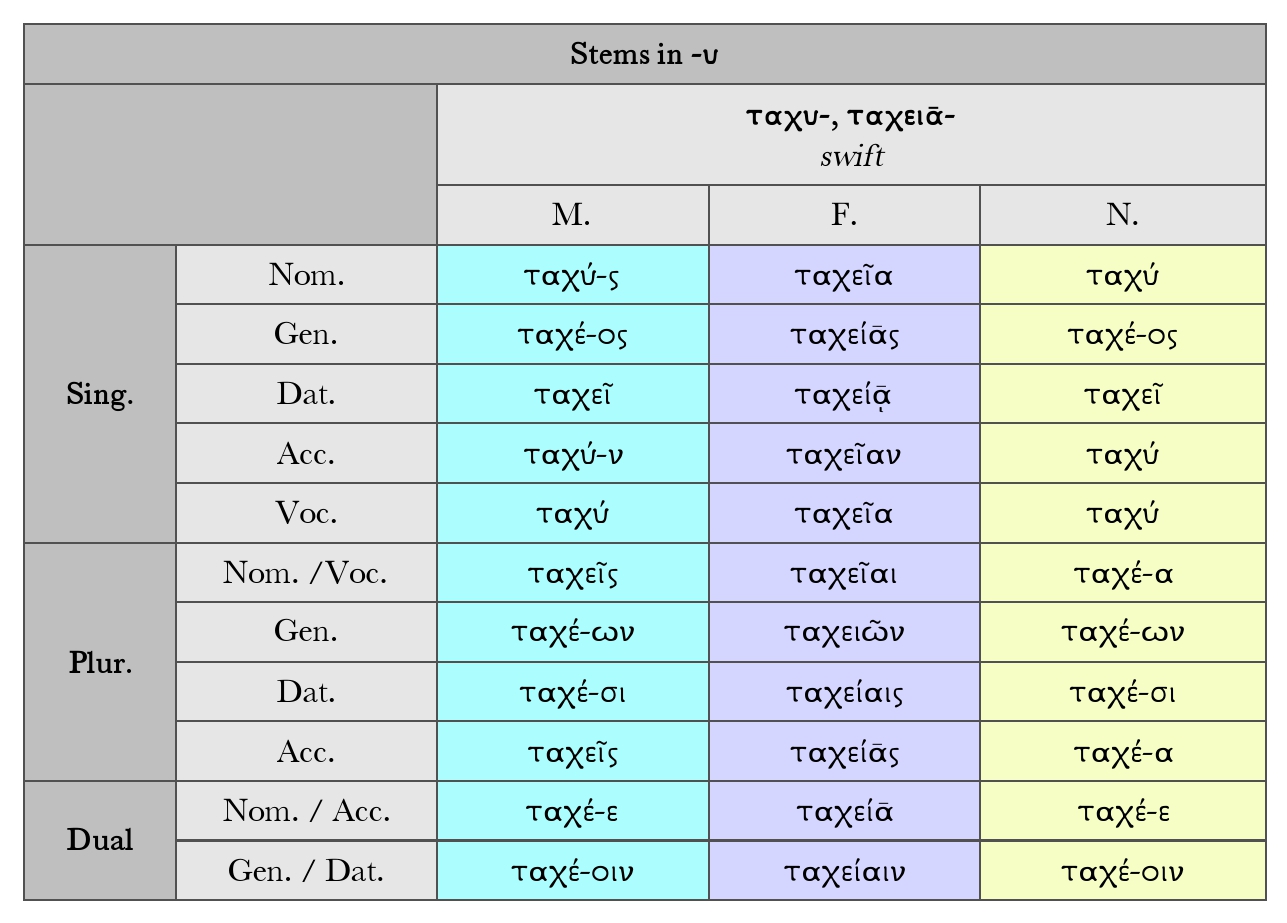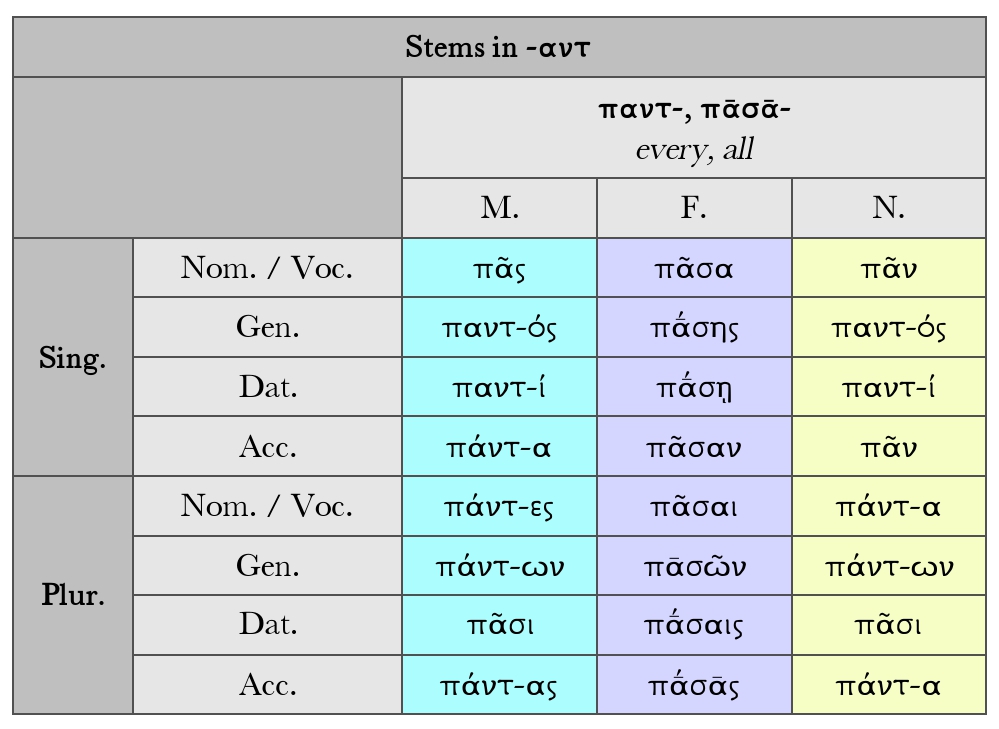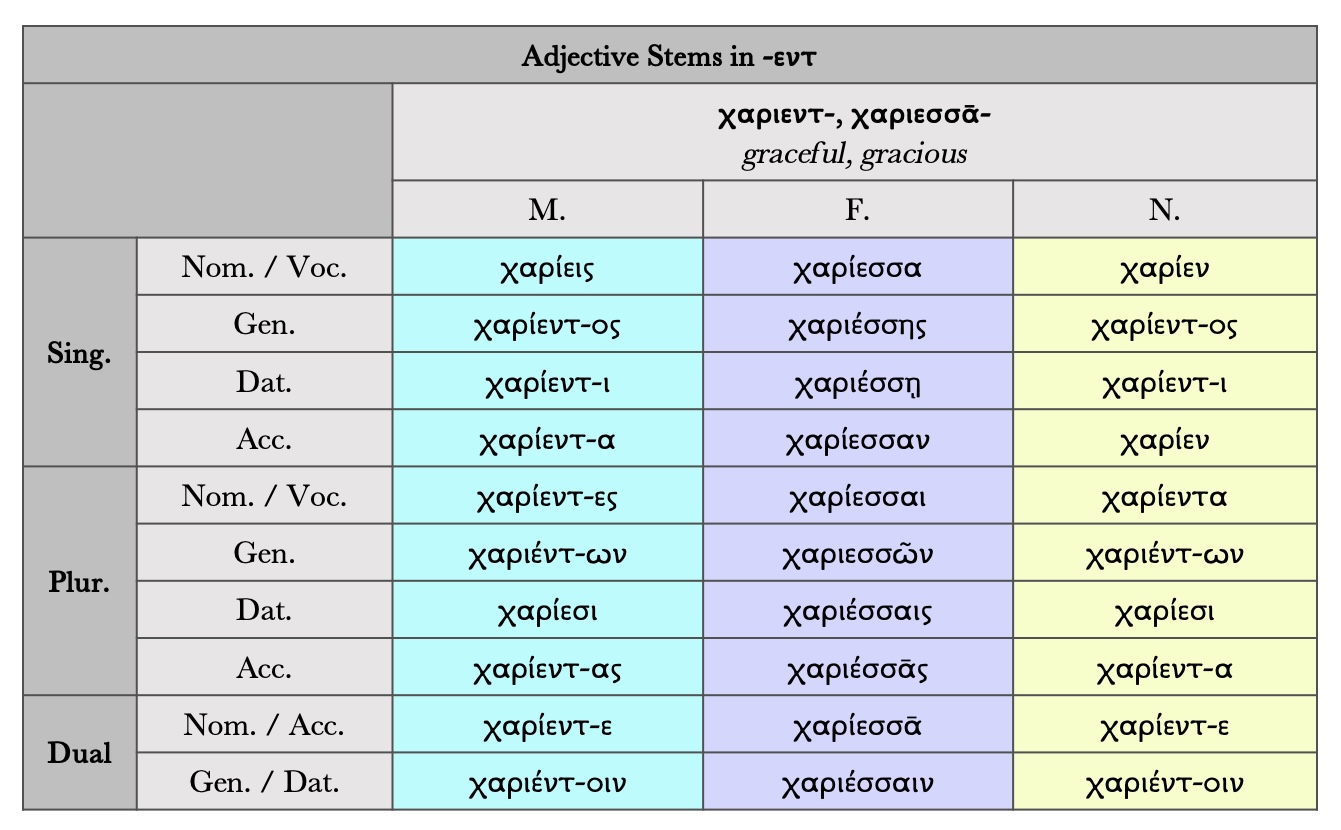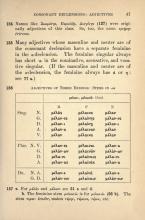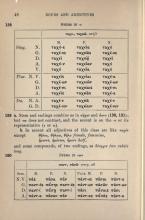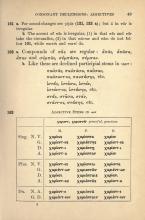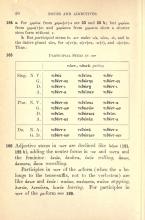156. Adjectives of Three Endings: Stems in -αν
157. a. For μέλᾱς and μέλασι see §§ 51.a & d.
b. The feminine stem μελαινᾱ- is for μελανιᾱ- (§ 56.b). The stem τερεν- (tender) makes τέρην, τέρεινα, τέρεν, etc.
159. a. Stem and endings combine as in πῆχυς and ἄστυ (§§ 130 and 131); but -εα does not contract, and the accent is on the -υ or its representative (-ε- or -ει-).
b. In accent all adjectives of this class are like ταχύς except
|
M. |
F. |
N. |
|
|
θῆλυς |
θήλεια |
θῆλυ |
female, feminine |
|
ἥμισυς |
ἡμίσεια |
ἥμισυ |
half |
and some compounds, of two endings, as δίπηχυς (two cubits long).
161. a. For sound-changes see γίγᾱς (§§ 121 and 122.a); but -ᾱ- in πᾶν is irregular.
b. The accent of πᾶς is irregular in that
πᾶς and πᾶν take the circumflex
πάντων and πᾶσι do not follow § 101, while παντός and παντί do.
162. a. Compounds of πᾶς are regular.
ἅπᾱς, ἅπᾱσα, ἅπαν
σύμπᾱς, σύμπᾱσα, σύμπαν
b. Like these are declined participial stems in -αντ.
παύσᾱς, παύσᾱσα, παῦσαν
παύσαντ-ος, παυσσης, etc.
ἱστᾱ́ς, ἱστᾶσα, ἱστάν
ἱστάντ-ος, ἱστᾱ́σης, etc.
στᾱ́ς, στᾶσα, στάν
στάντ-ος, στᾱ́σης, etc.
163. Adjective Stems in -εντ
164. a. For χαρίεις from χαριε(ντ)-ς see §§ 53 and 28.b; but χaρίεσι from χαριεί(τ)σι and χαρίεσσα from χαριετια show a shorter stem form without -ν-.
b. But participial stems in -εντ make -είς, -εῖσα, -έν, and in the dative plural -εῖσι, for -ε(ντ)ς, -ε(ντ)σα, -εν(τ), and -ε(ντ)σι.


